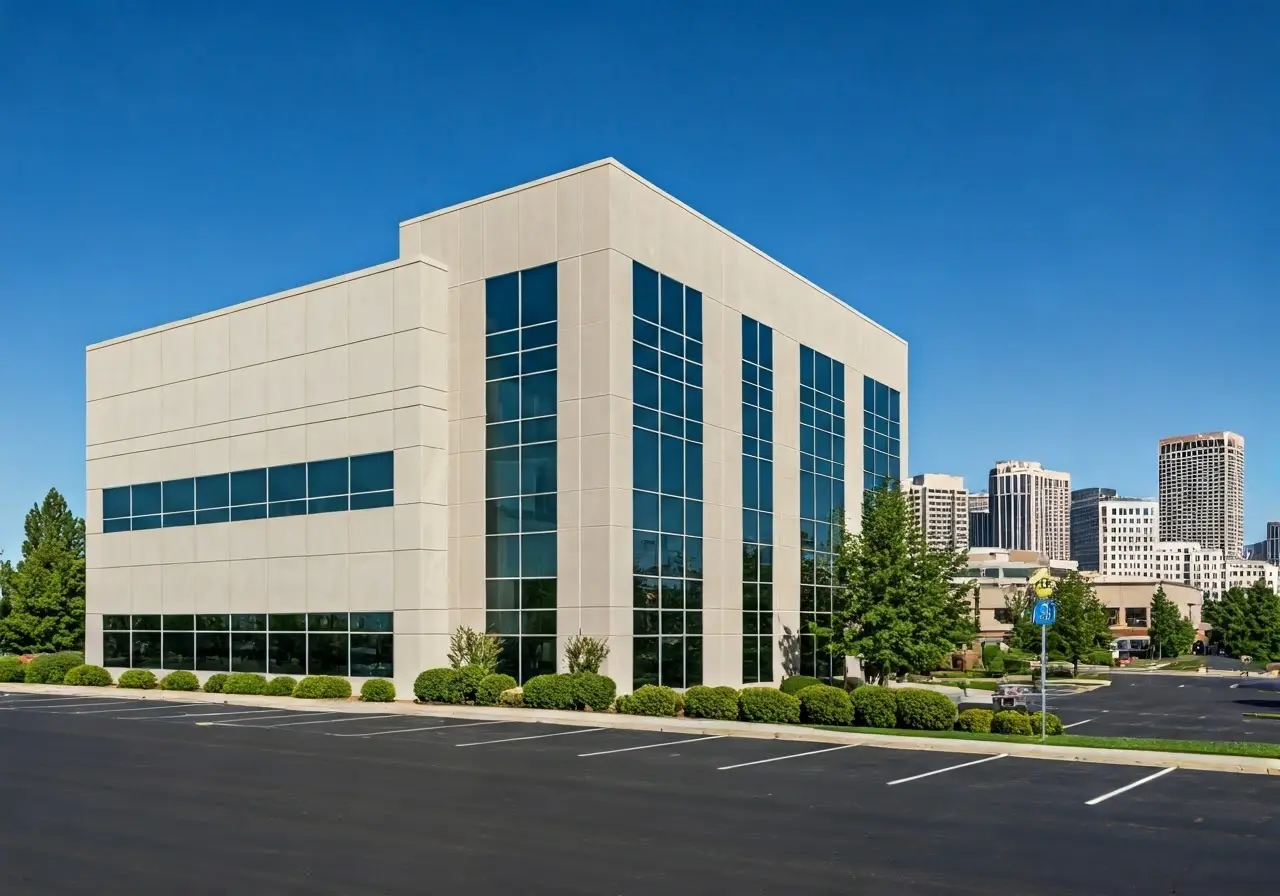In today’s digital age, ensuring security compliance is critical for businesses of all sizes, particularly in bustling areas like Boise. With increasing cyber threats and ever-evolving regulations, it’s essential to stay informed and prepared. This blog aims to outline practical tips that Boise-based businesses can adopt to enhance their security compliance posture while fostering trust with clients and partners.
Understanding Security Compliance Basics
Security compliance refers to the process of adhering to guidelines, regulations, and laws that govern the protection of sensitive data. For businesses in Boise, understanding these basics is crucial. It not only minimizes risks but also enhances your credibility among clients and stakeholders. Compliance is a journey, and recognizing the importance of these standards is the first step toward building a strong defense against potential threats.
At its core, security compliance combines both preventive and detective measures to safeguard data. This involves understanding various frameworks such as GDPR, HIPAA, and PCI-DSS that are designed to set standards for data protection. It’s essential for businesses to familiarize themselves with these guidelines. It allows them to identify which regulations apply to their operations, thereby streamlining their compliance efforts.
In addition to legal requirements, businesses should also consider industry best practices. This is where frameworks like NIST come into play. By integrating these practices into your compliance strategy, you will not only meet legal requirements but also enhance your overall security posture. Emphasizing a culture of compliance within your organization sets the tone for how all employees approach security, making it an ongoing effort rather than a one-time task.
The Importance of Data Protection in Boise
Data protection is not just a regulatory obligation; it’s a fundamental aspect of building trust with your clients. In Boise, where many businesses thrive on local relationships, failing to protect sensitive information could lead to severe repercussions, including reputational damage and financial loss. Therefore, establishing strong data protection measures is pivotal; these measures demonstrate your commitment to safeguarding your clientele’s information.
Furthermore, as businesses in Boise often handle a considerable amount of personal data, the implications of data breaches can be particularly damaging. The potential for leaks or hacking incidents means that every employee plays a role in maintaining data security. A single misstep can lead to catastrophic consequences, underscoring the idea that data protection is a collective effort rather than the sole responsibility of the IT department.
Organizations must implement robust encryption measures, implement secure backups, and conduct regular assessments of their data handling practices. These strategies not only serve to protect sensitive information but also comply with legal obligations. Adopting a proactive rather than reactive approach to data protection leads to a more resilient business model.
Key Regulations Affecting Boise Businesses
Navigating the landscape of security compliance can be daunting for Boise businesses, especially with the myriad of regulations in place. The most relevant regulations include the General Data Protection Regulation (GDPR) for companies handling EU citizens’ data, the Health Insurance Portability and Accountability Act (HIPAA) for healthcare providers, and the Payment Card Industry Data Security Standard (PCI-DSS) for businesses dealing with credit card transactions. Understanding these regulations is critical as they set the foundation for your compliance strategy.
Additionally, local regulations often intersect with federal laws. Boise businesses should pay attention to the Idaho Personal Information Protection Act (PIP), which governs the handling of personal data within the state. By familiarizing themselves with these various laws, businesses can devise comprehensive compliance strategies and avoid potential fines resulting from breaches.
It is essential to stay updated as regulations evolve. Regular training on these regulations for employees encourages a proactive mindset toward compliance. Companies should consider integrating compliance monitoring software that helps track compliance obligations to ensure that no regulation is overlooked, fostering a culture of accountability.
Conducting Regular Security Audits
Security audits are a significant aspect of any effective security compliance program. Conducting these audits regularly allows Boise-based businesses to identify vulnerabilities in their current systems and processes. A well-structured audit not only provides insights into weaknesses but also the effectiveness of current security measures. This can be especially important in a city where the business landscape is continuously evolving.
During an audit, it’s essential to evaluate both technological and procedural compliance aspects. For example, while evaluating access controls and data encryption practices are vital, human factors such as employee training programs also deserve attention. Integrating both technological solutions and employee awareness forms a holistic approach to compliance.
Maintaining regular communication with compliance officers and IT professionals during audits is crucial. Their insights can guide the audit process and provide context on compliance challenges. Once the audit is completed, creating an action plan to address identified gaps will make your compliance efforts more effective and sustainable.
Employee Training and Awareness Programs
Even the best security measures can be rendered ineffective if employees are not aware of their roles in maintaining compliance. Creating a culture of awareness is essential, particularly in Boise’s ever-competitive business environment. Continuous education not only ensures compliance but also empowers employees to act as the first line of defense against potential threats.
A well-developed training program should encompass various aspects of security compliance, including data handling practices, recognizing phishing attempts, and understanding the importance of reporting suspicious activities. Engaging methodologies, such as interactive workshops or scenario-based training, can dramatically improve retention and application of learned principles.
Moreover, regular refresher courses can reinforce the importance of security compliance and keep employees up-to-date on latest threats and mitigation strategies. Encouraging an open-door policy where employees can voice their concerns or seek clarifications fosters an environment of trust and vigilance, ultimately serving to strengthen your overall compliance framework.
Implementing Strong Access Controls
Access control is one of the most critical aspects of security compliance for businesses in Boise. Crafting a detailed access control strategy serves to protect sensitive data from unauthorized access. This process begins with identifying which individuals require access to what information and ensuring that access levels are appropriate to their job responsibilities. When employees only have access to the information necessary for their roles, it minimizes the likelihood of accidental breaches.
Implementing multifactor authentication (MFA) is an excellent way to bolster your access control strategy. By requiring multiple forms of verification, businesses can add another layer of security against unauthorized access. Additionally, routinely reviewing access privileges helps identify any unnecessary permissions that may have lingered after employee role changes, promoting better security practices.
Regularly updating passwords and enforcing strong password policies also plays a vital role in securing access. Employees should be educated on creating strong passwords and the risks of sharing passwords. Encouraging good password hygiene practices will significantly enhance your company’s overall security compliance efforts.
Utilizing Technology for Enhanced Security
Leveraging technology is essential in the quest for robust security compliance. In a digitally driven world, Boise businesses must utilize advanced tools and software solutions to safeguard sensitive data. Innovative security technologies such as intrusion detection systems, firewalls, and endpoint protection can help create a secure environment, allowing professionals to focus on their core business activities without constant fear of data breaches.
Software solutions that offer real-time monitoring and alerts help organizations stay ahead of potential threats. Implementing such systems not only protects data but also aids in compliance with regulatory requirements. Additionally, utilizing cloud storage solutions often enhances data protection, making it easier to implement backup strategies that comply with regulatory standards.
However, simply adopting technology is not enough; organizations must ensure that employees are adequately trained on how to use these tools. Regular training sessions that explain the benefits and functionalities of using modern security solutions can empower your workforce, reinforcing their role in the compliance ecosystem.
Preparing for Breaches: Incident Response Planning
No matter how robust your security compliance measures are, the possibility of a security breach remains. Therefore, having a well-structured incident response plan is non-negotiable for Boise businesses. This plan should outline the steps to take in the event of a data breach, including immediate actions to contain the breach and assess its impact.
A critical aspect of your incident response plan is the designation of a response team. This team should include members from various functions within the organization, including IT, communications, and legal advisors. Multi-disciplinary collaboration is paramount, as it ensures that all aspects of the incident are effectively managed, from technical containment to communication strategies.
Additionally, regularly testing your incident response plan through simulations can prepare your team for real-world scenarios. These drills should mimic potential security incidents and assess the effectiveness of your team’s response. Following these exercises, always conduct a debrief to identify areas for improvement and to refine the plan. Ultimately, a well-prepared incident response plan not only mitigates risks but also promotes confidence in your security compliance practices.
Final Thoughts on Security Compliance
By implementing these essential security compliance practices, Boise-based businesses can protect themselves against potential threats and regulatory pitfalls. Remember, compliance is not a one-time effort but an ongoing commitment that ensures long-term success and safety in your operations.




